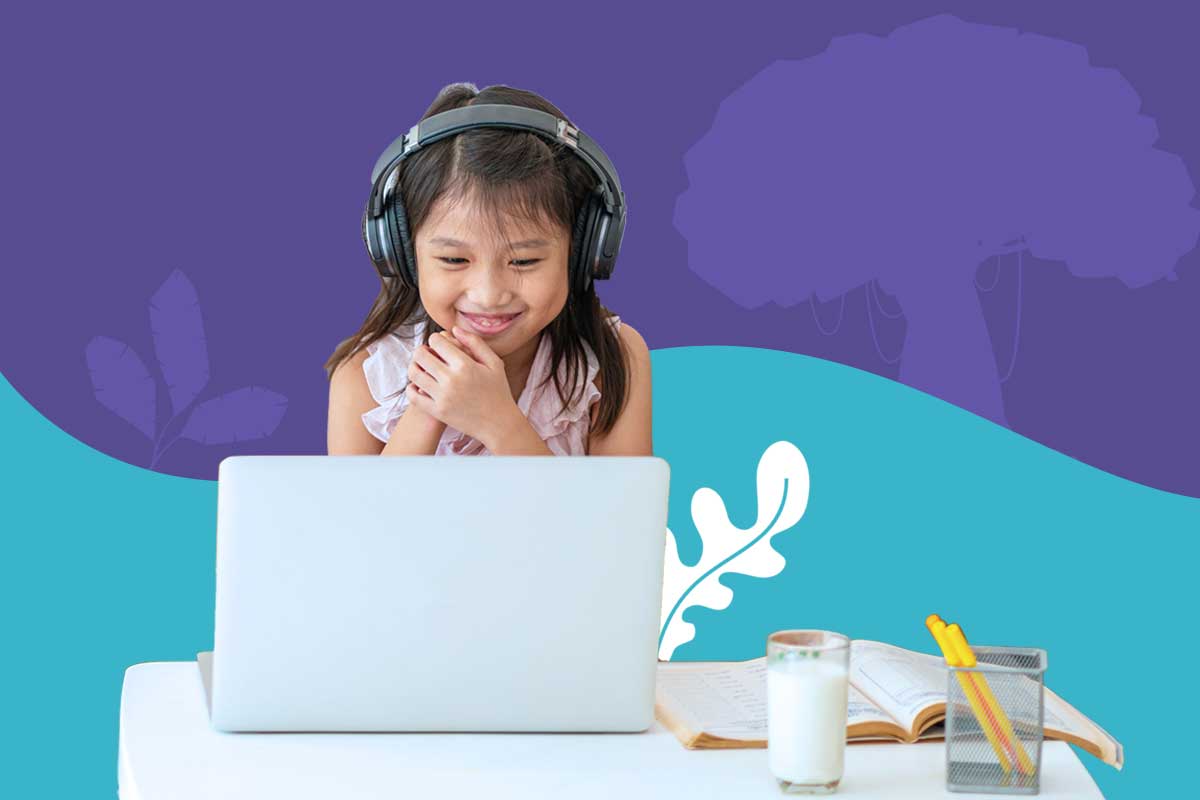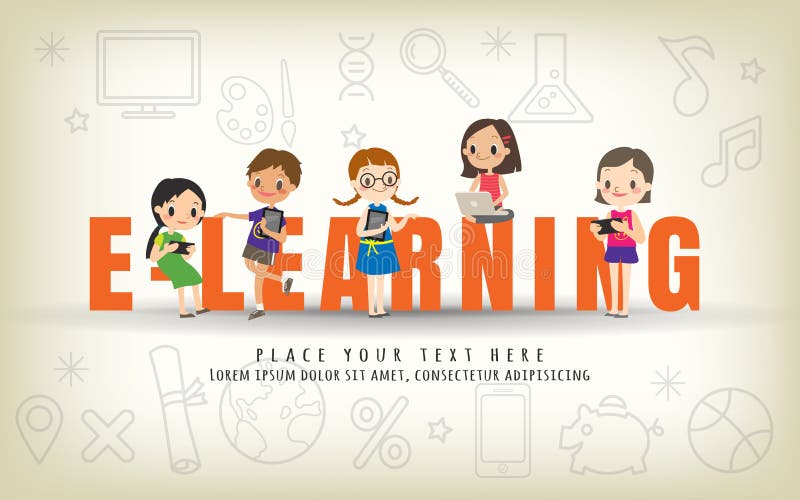The Role of E-Learning fit the Future of Education And Learning for Children
As conventional education systems progress, the assimilation of e-learning is emerging as a critical force in shaping the future of education and learning for children. Through interactive platforms, personalized discovering courses, and improved access, e-learning addresses varied educational demands while promoting crucial believing skills. This electronic transformation not only bridges geographical separates yet also ensures equitable accessibility to quality education, establishing the phase for an extra inclusive knowing setting. Recognizing the complete extent of this impact requires analyzing the complex effects of e-learning's duty in modern-day education and learning systems.
Interactive Discovering Atmospheres
In the world of e-learning for kids, interactive knowing environments have become essential tools in boosting academic outcomes. Education and study for children and kids. These digital platforms incorporate multimedia aspects such as video clips, animations, and gamified exercises to create a engaging and vibrant academic experience. Significantly, they transform easy understanding right into an active procedure, consequently promoting much better retention and comprehension

The assimilation of joint tools likewise permits for peer-to-peer interaction, which is crucial for establishing social abilities and teamwork capabilities. Virtual classrooms and conversation forums allow pupils to share ideas, ask concerns, and team up on tasks, replicating the advantages of traditional class interactions. As a result, interactive learning environments are not just supplemental educational tools but important elements that enrich the finding out community for children (Education and study for children and kids). Their role fit a much more interesting and reliable instructional landscape can not be overemphasized.
Individualized Education And Learning Courses
Using the capacity of customized education and learning courses reinvents the discovering experience for children by catering to their distinct needs and capacities. Standard one-size-fits-all methods typically fail to address specific understanding spaces and strengths. E-learning systems, nevertheless, can utilize innovative algorithms and information analytics to tailor instructional material, rate, and techniques to each youngster's particular needs. This personalization cultivates a more interesting and efficient learning atmosphere, enabling pupils to flourish at their very own pace.
Individualized education and learning paths also equip instructors by providing comprehensive insights right into pupil progress. Teachers can determine areas where a youngster may intervene and have a hard time with targeted assistance. On the other hand, pupils excelling in specific topics can progress without being kept back by a standardized curriculum. This flexibility not only improves scholastic efficiency however also improves trainee confidence and motivation.
In addition, e-learning systems can integrate diverse learning resources, such as interactive simulations, multimedia web content, and gamified lessons, to line up with different knowing designs. By suiting aesthetic, auditory, and kinesthetic learners, personalized education and learning courses make certain that each youngster obtains the most efficient training techniques. Education and study for children and kids. Thus, leveraging individualized education and learning courses via e-learning is critical in producing a future-proof, comprehensive, and effective educational landscape for kids
Enhancing Accessibility
While the advantages of tailored education and learning paths are significant, enhancing access is similarly vital to guarantee that e-learning systems can reach all youngsters, regardless of their socio-economic background or geographical location. Digital incorporation is necessary to connect the instructional divide and offer fair understanding possibilities. This can be accomplished via the advancement of affordable, premium e-learning solutions that are obtainable on diverse tools, including smart devices, computers, and tablets.
In addition, partnerships between federal governments, non-profits, and economic sectors can help with the circulation of essential technology and web accessibility learn the facts here now to underserved areas. Such collaborations can likewise sustain the production of local web content in different languages, making certain social relevance and comprehension.
Additionally, flexible discovering modern technologies can be customized to accommodate kids with handicaps, providing features like text-to-speech, adjustable text sizes, and interactive elements that satisfy different discovering demands. These innovations not only democratize education but also encourage students by offering tools that deal with private challenges.
Creating Crucial Skills
With ease of access enhancements in place, the next necessary element to address is the advancement of vital skills amongst young students. E-learning systems supply an one-of-a-kind possibility to cultivate a variety of important skills that traditional class setups might have a hard time to deal with comprehensively. Amongst these are important thinking, problem-solving, and electronic proficiency, which are progressively vital in the contemporary world.

Furthermore, e-learning systems typically incorporate collective devices like discussion forums, team projects, and peer evaluations, which cultivate interaction and team effort abilities. These systems likewise reveal students to a large selection of digital devices and resources, boosting their digital literacy. As trainees browse various software application, applications, and on-line sources, they end up being experienced at utilizing innovation properly and responsibly.
Basically, e-learning not just supplements typical education but likewise furnishes pupils with the critical skills required to prosper in an interconnected and increasingly electronic globe.
Overcoming Geographical Barriers
The advent of e-learning has substantially alleviated the geographical obstacles that generally prevented access to high quality education. Prior to the digital revolution, students in remote or underprivileged areas often faced minimal instructional resources and opportunities. E-learning platforms now bridge this gap, providing universal access to high-grade instructional web content no matter of place.
With on the internet classes, virtual libraries, and interactive tools, students from varied geographical histories can engage with the same curriculum supplied in municipal colleges. This democratization of education and learning makes sure that every kid, irrespective of their physical area, has the possible to accomplish academic success. E-learning promotes accessibility to specialized topics and skilled trainers that might not be offered locally.
In addition, e-learning allows real-time collaboration in between students and educators from different components of the world, fostering a worldwide knowing area. This interconnectedness not only improves trainees' educational experiences however also prepares them for an extra globalized workforce. By overcoming geographical restraints, e-learning is critical in developing an inclusive instructional environment where every kid has the opportunity to prosper. The role of e-learning expands beyond simple comfort; it is a transformative device that redefines ease of access in education and learning.
Final Thought
E-learning is crucial in forming the future of education for children by developing interactive and customized understanding settings. It enhances accessibility, fosters vital ability advancement, and gets rid of geographical obstacles, making certain all pupils gain accessibility to high-quality educational resources. This digital transformation equips learners with the devices required for scholastic and specialist success, promoting inclusivity and cooperation on an international range. E-learning, for that reason, stands as a cornerstone in the development of modern education and learning.
As traditional education and learning systems advance, the combination of e-learning is emerging as a pivotal pressure in shaping the future of try these out education for youngsters. Therefore, leveraging personalized education courses via e-learning is critical in creating a future-proof, comprehensive, and efficient educational landscape for youngsters.
While the benefits of customized education paths are significant, enhancing accessibility is equally vital to make sure that e-learning platforms can reach all children, regardless of their socio-economic history or geographic location. The role of e-learning expands beyond mere convenience; it is a transformative review device that redefines access in education.
E-learning is critical in shaping the future of education and learning for youngsters by producing customized and interactive knowing atmospheres.